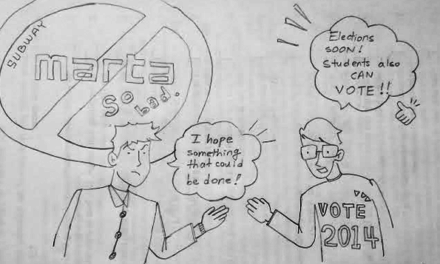On Aug. 4, a deadly explosion in Beirut, Lebanon left thousands injured and hundreds killed. In a recent address, former Lebanese Prime Minister Hassan Diab claimed the source of the blast to be 2,750 tons of ammonium nitrate accidentally left unattended in a port warehouse for nearly seven years. When asked why the material was there, Lebanon’s Interior Minister Mohammed Fehmi told local reporters: “You will have to ask customs.” When stored improperly, ammonium nitrate can decay and, when exposed to fire, it undergoes an intense chemical reaction very similar to the blast from two weeks ago.
Citizens believe that the blast was no innocent accident and rather the product of government negligence. NPR reporter Larry Kaplow agreed, suggesting this event exposed the Lebanese government’s institutionalized corruption. A recent tweet also revealed information about unfulfilled plans to auction off the poorly stored ammonium nitrate. This event signifies the Lebanese government’s failure to protect the residents of Beirut and its neighboring cities from a known threat to their livelihoods.
Due to a recent banking crisis and challenges brought on by COVID-19, Lebanon is teetering on the brink of economic collapse; since October 2019, the Lebanese pound has lost more than 80% of its value. Over one million protesters have stormed the streets of Lebanon throughout the last two years, demanding an end to inefficient, patronage-based and sectarian government practices. Lebanon, as a parliamentary democratic republic, allows Lebanese officials to divide economic spoils from foreign powers like Iran and Saudi Arabia among themselves, leaving the people of Lebanon struggling to afford essentials like food, water, electricity and medicine. As a result of the blast, over 200,000 residents are homeless or living in homes without windows or doors, and officials estimate $3 billion worth of damages.
In light of recent protests regarding the blast, former Prime Minister Diab resigned on account of corruption “bigger than the state” itself, and the rest of the Lebanese government followed suit. When Diab was appointed in January 2020, he assured citizens of his “road map to save the country.” Now, after stepping down to “allow the will of the people … to hold accountable those responsible,” he has upheld a history of disappointment and cowardice in Lebanon. Whether the explosion is a result of corrupt negligence or an innocent mistake, the Lebanese cannot expect their next leaders to keep their word. We must take matters into our own hands and educate ourselves, donate to local organizations and spread helpful information to support those affected by the disaster.

Aftermath of the Aug. 4 explosions that tore through Beirut, the capital of Lebanon./courtesy of Mehdi Shojaeian, Mehr News Agency, Wikimedia Commons
Western media networks continue to normalize and orientalize unrest in the Middle East. This Eurocentric approach to current international affairs desensitizes us to the tragedies that occur abroad. This devastating event may not have occurred in your hometown, but its victims’ suffering is no less real than if it had — they still desperately need your help. By sharing key resources with our networks, we can eliminate the notion that disasters are normal and expected issues that Middle Eastern countries, such as Lebanon, can handle alone. We can instead join forces to break existing barriers preventing us from enacting real change in our respective communities.
When Notre Dame Cathedral burned down, global concern helped French officials raise $1 billion in two days. On the contrary, Western news outlets have focused on the Beirut explosion’s tragic aftermath but have rarely shared petitions, organizations and fundraisers that allow us to support Lebanese citizens efficiently. Instead of doling out empty prayers and platitudes, we must alter our attitudes toward the Middle East by giving Lebanese individuals the attention and support they rightfully deserve.
Corruption is unfortunately endemic within Lebanon. To ensure that your contributions reach those in need, donate to organizations and fundraisers such as the Lebanese Red Cross, Impact Lebanon, UNICEF, Islamic Relief, Humanity and Inclusion, Help for Beirut Disaster (organized by Lebanese students in the Atlanta area), and International Medical Corps. All support victims directly by meeting them face-to-face and assessing their needs. Educate yourself about the issues plaguing Lebanon, some of which include unemployment, political instability, widespread hunger and increasing foreign debt. Assist Lebanese members of your community by sharing with others the information above and offering emotional support when needed.
By actively sharing these resources, you can both help Lebanon recover and motivate others to fight alongside you. With a click, share or donation, you can make a significant difference in the lives of those affected by this calamity.
Sara Khan (23C) is from Fairfax, Virginia.
Sara Khan (23C) is from Fairfax, Virginia, double majoring in neuroscience and behavioral biology and English. In her free time, she enjoys reading, watching Netflix shows, playing sports and listening to music. Contact Khan at sara.a.khan@emory.edu.



